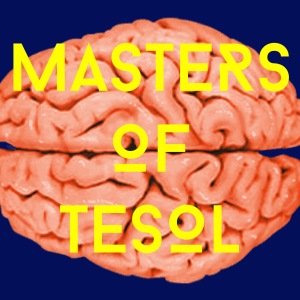Go offline with the Player FM app!
12 – Babies and First Language Acquisition – Tamar Keren-Portnoy pt1
Manage episode 156931072 series 1148642
Now on Instagram!
Once again, I got lost in the labyrinthian corridors of the University of York Language & Linguistic Science department, this time to speak to Tamar Keren-Portnoy about first language acquisition. There’s a lot of similarities between how we learn our first language and how we acquire our second language, so it’s a useful topic for ESL / EFL / second language teachers.
She gives us insights into such things as how babies develop syntax/grammar norms, why they learn some words earlier than others, how babies are not simply mimicking their caretakers and, through her own research with Rory DePaolis & Marilyn Vihman, how babies learn through listening and the sounds they themselves make.
You may remember Marilyn Vihman from episode 9 of MOT.
Later in the year, I’ll release a mini-episode about the developmental stages of babies.
Links:
Marilyn Vihman Interview on MOT
“Travel Broadens the Mind” – Campos et al (2000)
Key words: baby, babies, acquisition, teaching, learning, babbling, language, babbling, cooing,
25 episodes
Manage episode 156931072 series 1148642
Now on Instagram!
Once again, I got lost in the labyrinthian corridors of the University of York Language & Linguistic Science department, this time to speak to Tamar Keren-Portnoy about first language acquisition. There’s a lot of similarities between how we learn our first language and how we acquire our second language, so it’s a useful topic for ESL / EFL / second language teachers.
She gives us insights into such things as how babies develop syntax/grammar norms, why they learn some words earlier than others, how babies are not simply mimicking their caretakers and, through her own research with Rory DePaolis & Marilyn Vihman, how babies learn through listening and the sounds they themselves make.
You may remember Marilyn Vihman from episode 9 of MOT.
Later in the year, I’ll release a mini-episode about the developmental stages of babies.
Links:
Marilyn Vihman Interview on MOT
“Travel Broadens the Mind” – Campos et al (2000)
Key words: baby, babies, acquisition, teaching, learning, babbling, language, babbling, cooing,
25 episodes
All episodes
×Welcome to Player FM!
Player FM is scanning the web for high-quality podcasts for you to enjoy right now. It's the best podcast app and works on Android, iPhone, and the web. Signup to sync subscriptions across devices.





